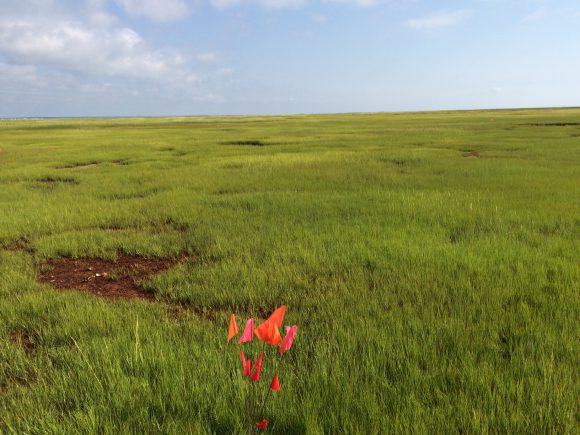
New Jersey Salt Marsh.
Three Rutgers units are set to begin work this winter on a collaborative science project that will examine the intersection between sea level rise, salt marsh structure, habitat modification and restoration, as well as nuisance mosquito populations that can pose serious health risks to humans, livestock and pets. The project, “Investigating the Interconnectedness of Climate Change, Nuisance Mosquito Populations, and Long-term Resilience of Coastal Salt Marsh Systems,” is funded by a National Estuarine Research Reserve System (NERRS) Science Collaborative grant worth $743,000 for three years.
The Center for Remote Sensing & Spatial Analysis (CRSSA), Center for Vector Biology (CVB) and the Jacques Cousteau National Estuarine Research Reserve (JCNERR) are the beneficiaries of the collaborative grant. The primary focus of the grant will be to improve our understanding of how wetlands enhance coastal community resilience as well as to promote marsh and mosquito management in the face of climate change.
The research team is led by Rick Lathrop, professor in the Department of Ecology, Evolution and Natural Resources and director of CRSSA. Lathrop is also the inaugural holder of the new Johnson Family Chair in Water Resources and Watershed Ecology. Other team members on the NERRS grant include Dina Fonseca, professor in the Department of Entomology and director of the CVB; Michael Kennish, research professor in the Department of Marine and Coastal Sciences; Lisa Auermuller, watershed coordinator for JCNERR; and Scott Crans of the New Jersey Office of Mosquito and Control Coordination. Mosquito control agencies and other land management partners will aid in the design and implementation of the research and outreach program to inform management actions, plans and strategies.
The Rutgers grant is part of a larger disbursement of $5.25 million made by NERRS to eight projects involving five reserves across the U.S., following environmental compliance review and approval from the National Oceanic and Atmospheric Administration. Since 2015, awards totaling $8.5 million have been awarded through the collaborative in support of projects in 12 reserves around the country.

